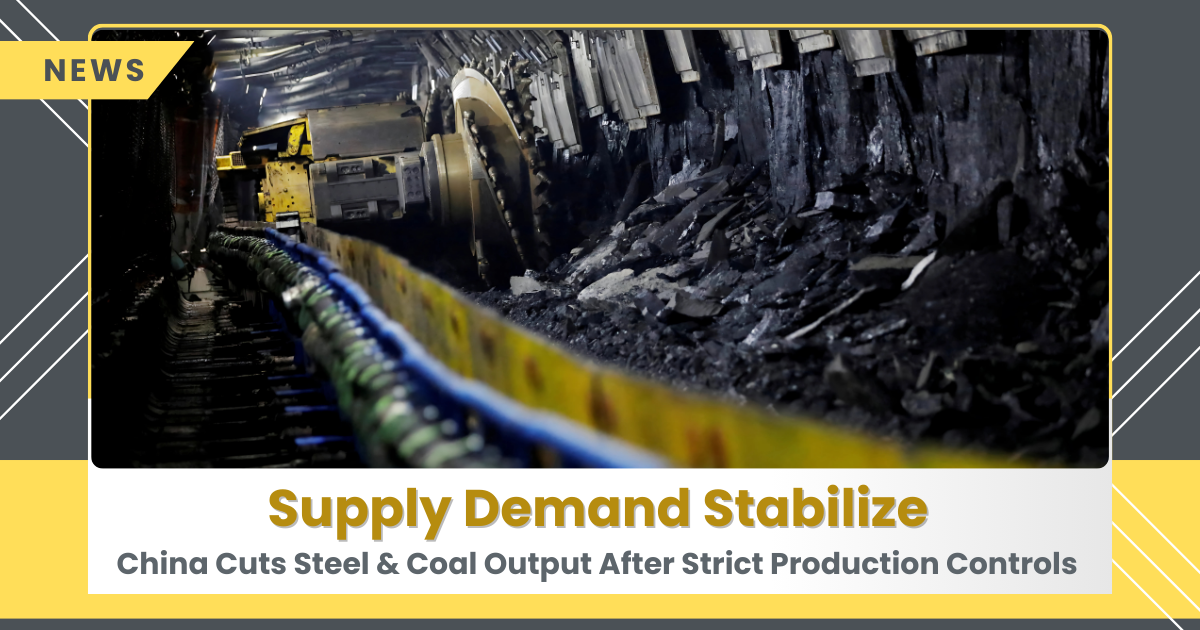India–US Trade Tensions Rise Over Steel and Auto Tariffs NMDC Limited reports a 38% drop in Q4 FY24 consolidated net profit RINL to Raise $23 Million Through Land Sales Amid Crisis

China has reported a decline in both coal and steel output following the government’s renewed push to enforce production controls aimed at reducing emissions and stabilizing supply-demand balance. Authorities have been tightening output limits across key industrial hubs to ensure the country remains aligned with its climate commitments and to prevent overcapacity in the steel sector.
Steel production, which had seen steady growth earlier in the year, fell as major mills cut back operations to comply with environmental restrictions. Industry sources indicate that blast furnace utilization rates dropped, affecting both domestic supply and export availability.
Coal output also decreased as part of China’s broader strategy to curb reliance on high-emission fuels and promote cleaner alternatives. This move has impacted power generation as well as the availability of coking coal, a critical raw material for steelmaking.
Analysts note that while these measures may tighten supply in the short term, they are necessary for China to meet long-term decarbonization goals. However, reduced production could also influence global steel prices and trade flows, especially as international markets remain sensitive to China’s policy-driven output changes.
Also Read : Chinese money still chasing Canadian critical mining deals despite Ottawa's scrutiny China to set up carbon footprint management system by 2027